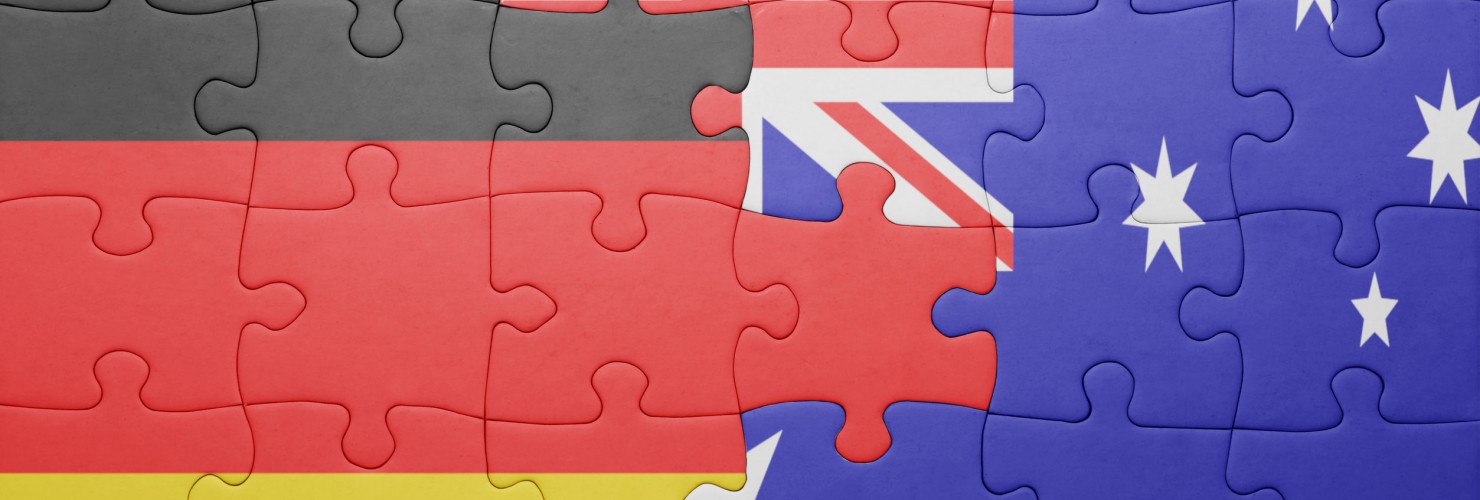

Australia and Germany should work together on China
As political elites In Berlin and Canberra have woken up to the challenge of Chinese Communist Party (CCP) influence, they should work together to address it. The next edition of the biannual meeting of their foreign and defence ministers later this year should put the issue of CCP influence on top of the agenda.
Efforts by the Chinese Communist Party (CCP) to influence Australian politics have made headlines since 2017. In recent months, similar attempts have been at the centre of German debates.
While geographically distant, Australia and Germany are well suited to address this challenge jointly, and have started to compare notes through a biannual meeting of their foreign and defence ministers.
Germany has been keen on expanding links with like-minded countries in the Asia-Pacific. For Australia, it is a kind of pairing only usually seen with partners in its region, and with the US and UK.
Australian intelligence agencies are convinced that foreign governments want to deepen their influence in the country. As a result, the government is working on laws combatting this.
German intelligence services are also increasingly aware of influencing attempts from Beijing. In December, they revealed that Chinese agents were using fake LinkedIn profiles to gather information on German civil servants and politicians. Such anxieties are understandable, considering reports about retired top-level German politicians tied to Beijing, who promote China’s official views at home. Observers also scrutinise contact between Beijing and the influential far-right Alternative for Germany (AfD) party and a smaller pro-China German political group.
Collaboration on CCP influence will help Germany and Australia shape regional debates
Beyond concerns over CCP influence on domestic politics, both Germany and Australia play a distinct role in their regions as important and influential European and Asia-Pacific countries respectively. Collaboration on CCP influence will help Germany and Australia shape regional debates and find partners to work with.
Beijing’s influence is increasingly seen in Germany as a challenge to EU cohesion and European integration that adds to existing challenges, including Russian interference, the migrant crisis, and the rise of right-wing populism. Chancellor Angela Merkel has explicitly warned against China’s “divide-and-rule” tactics in Europe.
Germany is also concerned about the rules-based international order, which is at the core of Europe’s DNA and foreign policy, and worries that it has been weakened by China’s successes at dividing EU member states on international law and human rights.
Increasingly, Germany also sees the CCP influence debate through the lens of systemic competition, with China challenging liberal democratic values central to the European project. In a speech in February 2018, then foreign minister Sigmar Gabriel warned against China: "developing a comprehensive systematic alternative to the Western model that, in contrast to our own, is not founded on freedom, democracy and individual human rights."
A Merkel confidant, the Bundestag’s President Wolfgang Schäuble, went further in an interview: "we are in a global competition, politically and economically. I do not want to accept that the Chinese model is winning."
Wary about the need to work with regional partners with different political systems, Canberra has tried to avoid talking about values directly. Instead, as the 2016 Defence White Paper and 2017 Foreign Policy White Paper show, Australia uses the rhetoric of a “rules-based order” to describe the norms, standards, and international laws that support Australian interests. In practice, this has been exemplified by Canberra’s support for the international case brought by the Philippines on China’s maritime claims in the South China Sea.
Berlin and Canberra should prioritise cooperation at the political level
ASEAN needs Australia’s weight to deal with China’s growing influence in the Asia-Pacific just as much as Europe needs the collective weight of EU member states, and larger members such as Germany, to take concrete steps to tackle China’s influence. Both regions would benefit greatly from Australia–Germany exchanges on CCP influence, and learn a lot from one another’s distinct perspective and subsequent approaches.
Germany and Australia should prioritise cooperation at the political level. Foreign and defence ministers should put the CCP at the top of the agenda for the next bilateral meeting later in 2018, to devise concrete responses to deal with Beijing.
The German and Australian governments have a lot to learn from one another about the mechanisms and guidelines used to manage CCP influence; how their bureaucracies coordinate on these issues (internally and externally); and the assumptions that underlie their thinking. As liberal democracies, it is their job to find ways to manage interference from authoritarian states while ensuring that they stay true to their democratic selves.
If both Australia and Germany are to find robust solutions to CCP influence, collaboration must extend beyond closed-door consultations to include researchers, journalists, and academics. Joint efforts to strengthen democratic resilience will become an increasingly important point of reference and comparison, as both Germany and Australia continue to face headwinds from China’s divisive regional mechanisms in Europe and the Asia-Pacific respectively.
Frances Kitt is a Research Associate in the East Asia and International Security Programs at the Lowy Institute for International Policy, an independent think tank based in Sydney.
This article was first published on June 21 by the Interpreter (Lowy Institute).

